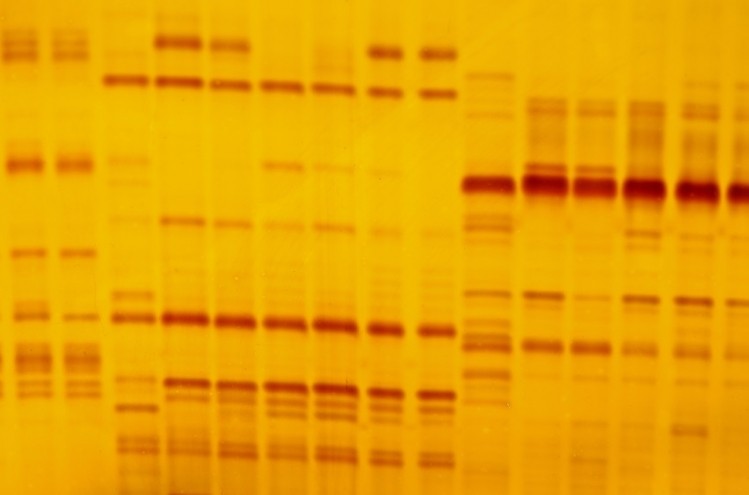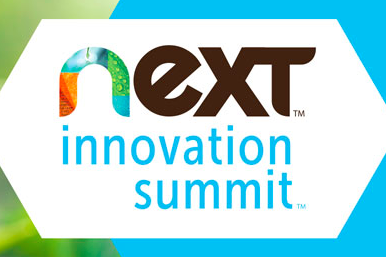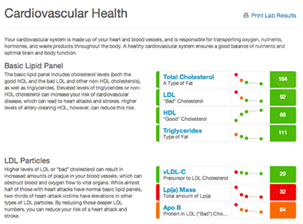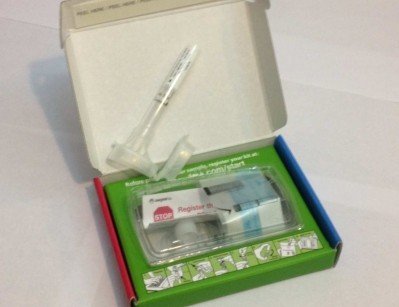Rise of personalized genetic databases provides trove of info to drive research, product development

Attendees at the recent Personalized Medicine seminar put on by the United Natural Products Alliance in Salt Lake City were treated to a tour of some of the new genetic tests available in the market. These included presentations on the tests and services offered by 23andMe, WellnessFX, and Pathway Genomics. Also during the seminar, attendees were told about NuSkin’s history of gathering personalized health status information via skin scanners the company has had in the field for almost 10 years.
Same river, different rocks
The tests will be able to offer a look at how individuals respond to environmental inputs. The broad brush strokes of these have been known for many years if not centuries. Poor diet means nutrient deficiencies that generally yield poor health, for example. Or more recently, high stress levels can impact conditions such as heart disease.
But what has been less clear is why certain people respond to these inputs more than do others. Many smokers develop cancer or other health conditions, but everyone knows a story of a smoker who lit up a pack a day for his whole, long, healthy life. What determines how one’s genotype plays out in day-to-day metabolic processes, or one’s phenotype in other words?
“It’s like a river that is running over a topography. That same river running over a different topography can look quite different,” said Dr Jeffrey Bland, PhD, president of the Personalized Lifestyle Medicine Institute and one of the presenters at the conference.
“No two people actually have the same disease.”
Growing databases
Geoffrey Benton, PhD, the senior scientist of health content at 23andMe, took attendees on a tour of the company’s popular and convenient personalized genetic testing kit, which now costs $99. The kit requires one fairly hefty saliva sample, but is easily finished, including mailing, within an hour. Previous tests available in the market were far more cumbersome, which limited uptake.
By contrast, 23andMe, founded in 2006, now has more than 450,000 genotype members. The genetic information resides on the company’s servers. The privacy of the data is protected by personal passwords.
“We believe customers should have access to the data. It’s their data, after all,” Benton said.
In addition to providing some personal genetic heritage information, the tests yield results that might give consumers insights into whether they are predisposed to certain diseases, or which types of nutrients might work best for their individual physiology. It can also help consumers understand which drugs might work best, such as certain classes of antidepressants, for example.
“We give you that piece you can use to help your doctor,” Benton said.
But, depending on the levels of permissions users grant when registering the test, that data can be used for other purposes, such as driving research. And amassing that huge database is an overarching goal of the tests, which are provided to consumers more or less at cost, Benton said.
“We have multiple grants from NIH,” he said.
Personal info drives buying decisions
Another company that has been gathering personalized health data for years on its customers is NuSkin, a multilevel marketing company that sells personal care and nutritional products. Starting in the early 2000s, the company started using a technology developed by physicists at the University of Utah who discovered that UV light shined on a small spot on the skin could measure the level of carotenoids in that tissue, which proved to be good overall indicator of the levels of those molecules within the whole system. Low levels of these nutrients equates to higher risk of health problems down the road, said Mark Barlett, PhD, vice president of global R&D for NuSkin.
“It’s nice to have a biomarker like carotenoids that captures a lot of the risky behaviors. We know that carotenoids upregulate endogenous antioxidants,” he said.
Using the scanners, which the company developed from a bulky, balky machine to one that runs on batteries and essentially fits into a shoebox, the company has amassed data on tens of thousands of consumers. Not only does it provide the company a significant database to work from when making product development decisions, but it helps drive the sales process for its distributors.
“Grandma told you to eat your fruits and vegetables but that wasn’t a good enough reason,” Bartlett said. “Progressively over the years people’s scores have risen.”
Big companies + Big Data = big results
Big companies have taken note of the potential offered by the growing amount of personal data available said Dr. Michael Nova, chief medical officer of Pathway Genomics, a company that offers multiple genetic tests ordered mostly through health practitioners. The company recently completed a project for Pepsico (owners of the Gatorade brand) which gathered genetic information from about 1,000 marathon runners.
“They want to personalize their hydration products. They want to personalize their food products,” Nova said.
The mounting store of data will yield results via meta analysis that will greatly accelerate the understanding of how lifestyle factors interact with the underlying genome to produce health outcomes, which will benefit both for traditional medicine and for the operators of supplement and food businesses, observers say.
“When I was in medical school it was: DNA makes RNA which makes a protein and then you have your effect. That is so far off what we understand today,” Nova said.
Benton of 23andMe added: “We want to leverage this information to help companies run their businesses but also to move the public health needle.”
















